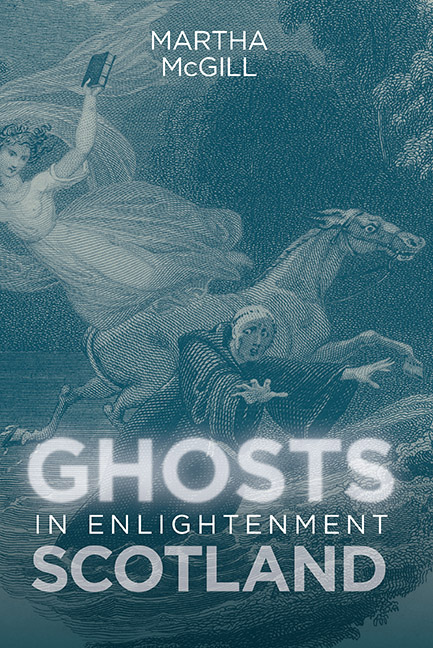Book contents
Introduction
Published online by Cambridge University Press: 12 October 2019
Summary
Over the last five hundred years, the figure of the ghost has allegedly died many a death. After the Reformation (1560 in Scotland), Protestant theologians attempted to rout ghosts from their tenuous place within the Christian framework, and in 1597 James VI boasted that a Scotsman would scarcely ever hear word of ‘Ghostes and spirites’. Sceptical approaches towards the supernatural flourished during the Enlightenment, such that ghosts were said to have been ‘chased from the realities of existence … before the light of the sun of science’. The nineteenth-century folklorist Walter Gregor blamed industrialisation, declaring that ghosts were scared away by ‘the scream of the railway whistle’, while the literary scholars Peter Buse and Andrew Stott suggested that twentieth-century western society had replaced ghosts with aliens and conspiracy theories. Nevertheless, the idea of the ghost has – appropriately enough – lingered on post-mortem. Polls have consistently suggested that between 30 and 40 per cent of British adults believe in ghosts, a marked increase from 10 to 20 per cent in the 1950s. Ghosts have retained a prominent position within popular culture, and over the last few decades they have increasingly infiltrated the academic world. Scholars of diverse disciplines are coming to recognise the ways in which ghosts can reflect on societal development.
Scotland has long been characterised as a haunted nation. An 1842 magazine article declared: ‘Were we seriously asked what part of Christendom, whether in remoter ages or comparatively modern times, was most troubled with supernatural horrors, we should without doubt or hesitation, answer, “Scotland”.’ It went on to explain that when it came to ghosts, the ‘best known and most widely diffused of all the spectral race’, Scotland had more than any other part of Europe, and probably more than half of Europe put together. Admittedly, similar claims have been made for a host of other countries, including England and Wales. Narratives of Scottish exceptionalism should be read with caution. But whether or not Scotland is especially haunted, historical ghosts have occasionally taken on a Scottish tinge, and have been used by Scots to navigate concepts of national identity.
This book is particularly concerned with the period from 1685, when a university professor called George Sinclair published a collection of supernatural stories, to the death of Walter Scott in 1832.
- Type
- Chapter
- Information
- Ghosts in Enlightenment Scotland , pp. 1 - 16Publisher: Boydell & BrewerPrint publication year: 2018

